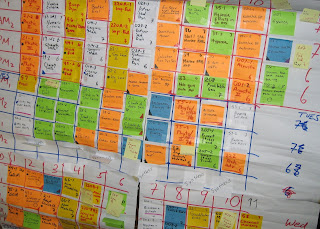wnuttle@eco-hydrology.com
Last week NOAA Administrator Jane Lubchenco joined a host of political leaders to announce Rhode Island’s Ocean Special Area Management Plan (Ocean SAMP). This is a big deal because NOAA touts Ocean SAMP as the template for implementing coastal and marine spatial planning (CMSP) in the US. CMSP is defined as a comprehensive, adaptive, integrated, ecosystem-based, and transparent spatial planning process, based on sound science. The push to adopt CMSP is international in scope.
In practical terms, CMSP provides a process for analyzing current and anticipated uses of estuaries and coastal waters to determine how to realize commercial, recreational and environmental goals. The motivation behind Ocean SAMP was to get out in front of issues related to installing a couple hundred wind turbines to generate electric power off the Rhode Island coast. The plan encompasses an area of approximately 1,467 square miles, including portions of Block Island Sound, Rhode Island Sound, and the Atlantic Ocean.
If this marks the beginning of the future for coastal planning and management, then widespread implementation of CMSP will affect how coastal and estuarine research is supported and organized in coming years. So, what insights does the Ocean SAMP report provide into what may be the future of our science?
Plan Based on Best Available Information
The Ocean SAMP uses the “best available science” to build a comprehensive understanding of the area’s ecosystems. Through the multi-year process of developing the plan, a Science Advisory Task Force provided expertise and input on issues of science and research. New research was commissioned, and the results of this research are reported in the plan document and in a series of appendices to the main report. A chapter in the main body of the report titled “Ecology of the Ocean SAMP” describes the regional ecosystem. However, authors opted for using a more traditional, natural history framework; topics proceed hierarchically from geology and meteorology through physical oceanography, chemical oceanography, and on to biological oceanography.
Coastal and Estuarine Science Moving Forward
Part of the vision for CMSP is the implementation of ecosystem based management of estuarine and coastal areas, thus the attention to thoroughly documenting the ecosystem of the Ocean SAMP at its outset. Ecosystem based management also means committing to conduct ecosystem research, monitoring and analysis on a continual basis as an integral part of management activities in the region. Objectives for the (future?) Ocean SAMP Science Research Agenda are to:
- Continue to learn about Rhode Island’s offshore natural resources and human activities;
- Better understand the potential effects of future development and other human impacts; and
- Increase Rhode Island’s understanding of the projected impacts of global climate change.
Future plans are to convene an advisory group with scientists from partner federal and state agencies, environmental organizations, and users of the Ocean SAMP area. Presumably, it will be up to this group to articulate critical details of the research agenda by identifying data gaps, short- and long-term research priorities, potential partners, and potential funding sources.
The information in this post relates to Topic 6: Management applications of the CERF 2011 synthesis sessions. I'd like to hear more from anyone who has been directly involved in the development of the Ocean SAMP.


